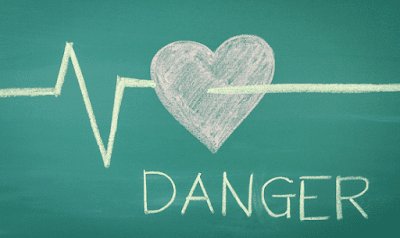The acronym CT scan stands for Computer Tomography scan. It is a test available in most of the cardiology hospital; it uses x-rays to examine specific parts of the body. The scan obtains detailed images of the body with the help of a safe quantity of radiation; these images with the help of a computer can be used to create a 3D image of the whole heart. It is a painless procedure and allows the doctor to spot ailment in the part of the body that is under examination.
The test can be taken the same day it has been prescribed by the doctor; the test is quick and involves almost no complications.
Purpose of Conducting a Heart CT Scan
The purpose of this cardiology test is to find out if your heart is functioning normally or not. Your cardiologist may prescribe this test if they observe symptoms like chest pain, irregular breathing, trouble with the breathing, excess sweating, weakness, etc.
Other symptoms that suggest to the doctor that you are suffering from heart problem can lead for him to advocate or demand this test. The purpose of this test is:
- It helps the doctor detect coronary heart disease
- Problem with the functioning of heart and its valves
- Calcium buildup in the arteries
- Defects of the heart that exist by birth
- Tumors within or outside the heart
- Plaque that builds up in the artery
- Clotting of blood in the chamber of the heart
There are different types of CT scans conducted for different purposes. A CT scan can also be used to examine if the tumor in the heart is responding to treatment or not. It can also be used to plan the radiation therapy. CT scan is a very important scan with numerous possibility; not just for the heart, but other regions too.
Procedure:
The test may be conducted at the radiology department or at a clinic that specializes in such tests. The procedure usually does not last more than 15 minutes in most cases, but can take as much as 1 hour if you include the preparation time.
Beta blockers will be provided to you that will slow the heart rate. Before the test is conducted the technician will inject a dye into your veins; this dye usually contains iodine. The dye is used to make your blood vessels more prominent, this helps in creating a clearer image. The dye to harmless and can be flushed out of the body.
The CT scanner is a large round cylinder that has a table going into it. You will lie on the table and it will slide into the tunnel-like cylinder. At the beginning of the test, the technician will ask you to lie on the table in a position that he or she thinks is suitable. You may also be strapped with a belt to keep you stagnant on the table. During the test, while the pictures are being taken, the technician might ask you to hold your breath for about 10-20 seconds.
You will go into the cylinder several times during the scan; the whole time you can talk to your technician or they might talk to you to make you comfortable. After about 15 minutes your test will be over and the pictures will be ready for the doctor to examine.
Risks Involved in a Heart CT Scan
The test usually does not involve many risks, there are more things killing you in your everyday life than this test. But in a rare instance, this test could prove allergic to those people who have an allergy to the dye, with this test there is also a slight chance of cancer because the test uses radiation. Therefore, it is recommended by cardiologists not to take the test more than the prescribed times.




